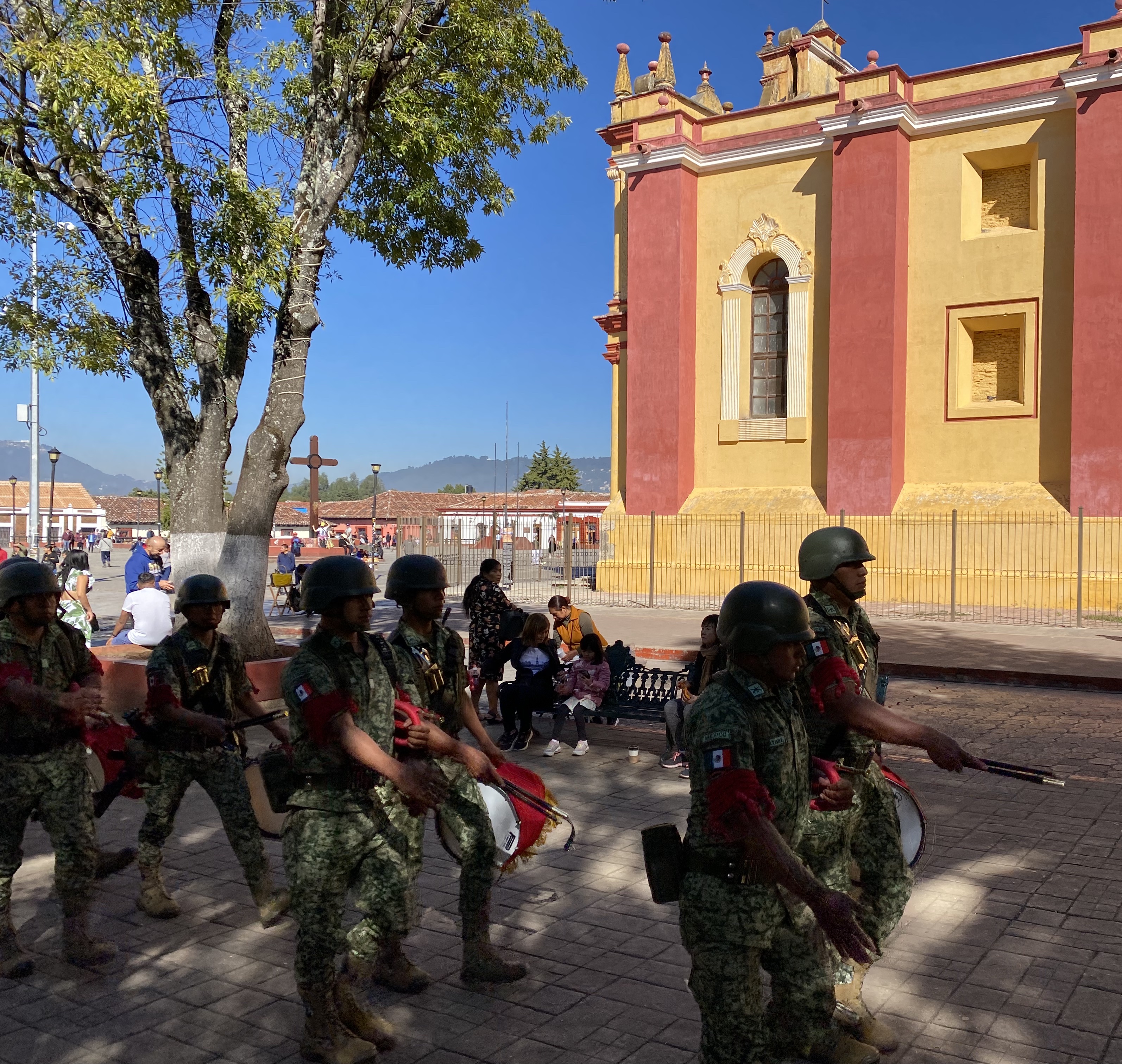|
Today's Opinions, Tomorrow's Reality
Lessons of the Revolutionaries By David G. Young San Cristóbal de Las Casas, Mexico, November 21, 2023 -- Mexico' single presidential term helps protect democracy from populists. Today's America enjoys no such protection. A commemoration of the Mexican Revolution created a festive affair in the cultural center of Chiapas on Monday. An army bugler in camouflage fatigues played patriotic tunes as local politicians and old men saluted. Soldiers marched around the main square. School children dressed as revolutionary hero Emiliano Zapata, complete with mock wooden rifles and sashes of ornamental bullets, danced and sang songs.
But for all the pomp and kitsch that memories of the 1910-1920 Mexican Revolution brings, some century-old reforms of that era are genuinely bound to Mexican culture. One notable reform of the era is a single 6-year presidential term. Today, this is a key factor helping protect against an erosion of democracy under authoritarian president Andres Manual Lopez Obrador, commonly known as AMLO. A populist often compared to Donald Trump, AMLO also draws support from the working class and the disaffected. He is now in the last year of his single term and has no basis under Mexican law to run for another term, or make dubious claims about election fraud that could attempt to keep him in power. This core Mexican belief came out of the dictatorship of Porfirio Díaz, who served a total of seven terms before being exiled by Mexican revolutionaries. The revolution ground on for a decade as generals fought each other for power. In the end, key revolutionary goals of nationalization of natural resources, land reform and presidential term limits were instituted, but real democracy was lost. Mexico became a de-facto one party state for nearly a century. What became the Institutional Revolutionary Party ruled with a series of single-term presidents until it was defeated in 2000 by the center-right PAN party of President Vicente Fox. Today, AMLO has built a new left-leaning party called Morena with widespread popular support. He defected from his left leaning PRD party after losing the elections in 2012 and 2006. His narrow 2006 defeat led to a heated dispute and election denial claims by AMLO and his supporters. Millions of his backers rallied in Mexico City’s main square against his electoral rival, and AMLO’s party deputies attempted to block the inauguration leading to violent scuffles. Such thuggish anti-democratic behavior is reminiscent of the January 6, 2021 insurrection at the US Capitol by supporters of Donald Trump. AMLO’s opponents often compare him to Trump and all of Mexico’s main political parties from AMLO’s old PRD in the left to PAN on the right (and even the century-old PRI) have banded together behind a single candidate in the June 2024 election. In an August speech at the Woodrow Wilson Center in Washington, DC, Federal Deputy Ildefonso Guajardo, who has part of the anti-AMLO coalition, warned a mostly American audience about the great threats to Mexican democracy posed by AMLO (the “Mexican Trump” as he described) in the coming election.1 The highly educated Mexicans living and working in Washington DC nodded in agreement. But the speaker offered no practicalities regarding how AMLO might retain power. Given most Mexicans’ high regard for their century-old revolution and single term system, there is little risk of public acceptance of a second AMLO term. And to be clear, AMLO has never even suggested changing Mexico’s constitution to stay in power. His Morena party has settled on Mexico City mayor Claudia Sheinbaum to stand as its candidate in the June 2024 elections. While Sheinbaum supports left-leaning policies that earn her enemies in conservative Mexican circles, few suspect her of being a simple puppet of AMLO — she clearly has an independent constituency of her own. Recent polls show Sheinbaum commanding an 18 percentage point lead over her closest rival.2 The bottom line is that whoever wins the 2024 election, Mexico will be free of AMLO’s authoritarianism. Americans, who still face the specter of re-election of its own populist and anti-democratic former president that same year, are not so lucky. The Mexican Revolution, it seems, offers valid lessons for Mexico and the United States alike. Notes: 1. Wilson Center, A Conversation with Mexico's Former Secretary of Economy and Current Federal Deputy Ildefonso Guajardo, August 16, 2023 |


